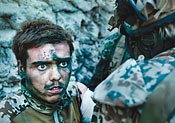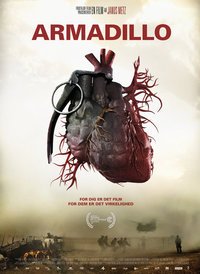TARINOITA GAZASTA
Israel on jälleen kerran toiminut käsittämättömästi surmatessaan kansalaisaktivisteja Gazaan matkalla olevilla aluksilla. Alusten, joissa mukana oli paitsi Euroopan parlamentin jäseniä myös Israelin Knessetin jäsen. Olin Länsirannalla perjantaina, kun kansainväliset avustuslaivat olivat jo matkalla kohti Gazaa. Me halusimme vain puhua palestiinaalisten mahdollisista dokumenttielokuvista. Mutta Gazaan meillä ei ollut asiaa, eivätkä palestiinalaiset päässeet Gazasta ulos.
Jälleen kerran ensimmäistä kertaa West Bankilla vierailleet eurooppalaiset dokumenttituottajat hämmästyivät. Todellisuus on erilainen kuin se kuva, minkä kokenutkin mediaihminen muodostaa itselleen median kautta.
No. Todellisuutta oli, että Ramallahissa pidettyyn palestiinalaisten elokuvahankkeiden esittelytilaisuuteen gazalaiset eivät päässeet. Israel kielsi jälleen kerran gazalaisia matkustamasta – edes Länsirannalle.
Ok, sitten projektien esittely ( pitchaaminen) tapahtui videokonferenssin avulla. Ja videokin kautta juuri gazalaisten projekteista heijastui intohimo, huumori ja osaaminen.
..... traileri Gazan elokuvateattereiden tuhosta edusti arabi-elokuvan osaamsita parhaimmillaan. Erinomaisella ammattitaidolla toteutettu traileir oli kuin lyhytelokuva, joka toi mieleen välittömästi Cinema Paradison.
On traagista, että Israelin miehityksen - ja Hamasin politiikan – takia Gazassa ei ole yhtään toimivaa elokuvateatteria samaan aikaan kun kodeissa katsotaan satoja satelliittikanavia, joiden tason on sitä, mitä televisio nyt ylipäätänsä maailmassa on.
Nuorten tekijöiden kaksi tarinaa – molempien keskiössä rakkaus – puolestaan olivat riemastuttavia sekä ajattelultaan että toteutukseltaan. Miltä tuntuu elää, kun oma rakastettu on periaatteessa tunnin ajomatkan päässä, mutta käytännössä saavuttamattomissa. Israelin pääministerille kirjoittaminenkaan ei
auta. Poika ei vain pääse Gazasta tapaamaan tyttöystäväänsä Ramallahiin.
Ja kaikki muutkin perheen jäsenet ovat levällään. Yhteisen perhepotretin aikaansaaminen on mahdottomuus.
Gazasta on muutenkin täynnä tarinoita. Miehestä, joka vetää Hamasin ja Fatahin keskinäisiä neuvotteluja ja joka sallii niiien kuvaamisen.Tunneleista, joiden kautta Gazaan salakuljetetaan kaikkea mahdollista.
Goethe-insituutin perustaman kirjaston hyllyjen puutavara tuotiin salaa tunneleiden kautta.Eläintarhaan tuotu leijona puolestaan heräsi nukutuksesta keskellä tunnelia ja haavoitti pahasti kahta kuljettajaansa.
Gazan saarron surrealistisuus näkyy kun katsoo saartoon kuuluvien asioiden listaa. Vettä saa tuoda, mutta ei appelsiinimehua. kahvi on sallittu, suklaa ei. Kaneli kyllä, korianteri ei ( vai oliko se toisinpäin?)
Muutaman vuoden sisällä maailmalla on varmasti monta tunnelijuttua. Toivottavasti edes yksi palestiinalaisten itsensä tuottama. Miksi vain yksi ? Koska taloudelliset resurssit ovat niin vaatimattomat verrattuna eruooppalaisiin dokumentaristeihin.
Ps. Israelin dokumenttielokuvantekijät kuuluvat pieneen, kriittiseen vähemmistöön maassa, jonka he kokevat menevän yhä enemmän oikealle. Eräänä huolestuttavimpana kehityspiirteenä he näkivät muutoksen Israelin armeijassa. ”Vielä kymmenen vuotta sitten komentajien joukossa oli paljon kibbutz - taustaisia labour-puoleen miehiä. Nyt he ovat väistyneet ja tilalle on tullut äärioikeistolaisia settlereitä.”
Niinpä entiset Israelin sisäisen salaisen palvelun komentajat arvostelevat Israelin politiikkaa paljon voimakkaammin kuin esimerkiksi useimmat suomalaiset poliitikot. Valmistuvassa dokumentissa yksi monia kovia operaatioita Gazassa ja Länsirannikolla toimeenpanneista miehistä vertaa Israeli Natsi-Saksaan.
Ja Gazan tapahtumia ennakoi monen israelilaisen elokuvantekijän kertomat tarinat siitä, miten parin viime vuoden aikana juuri kansainväliset rauhanaktivistit ovat olleet Israelin poliisin ja salaisen palvelun tähtäimessä " Heidän autojaan seurataan, rekisterinumerot otetaan ylös ja toiminnta yritetään tehdä mahdollisimman vaikeaksi."
PS. Saartolistan tavaroista näkee esim. täältä




